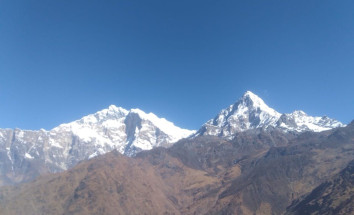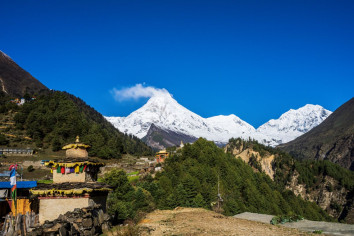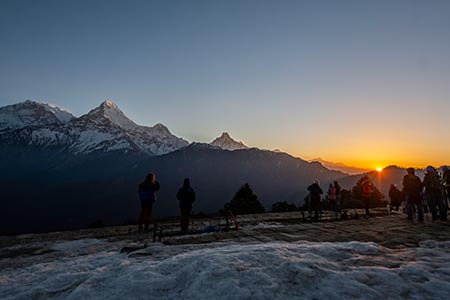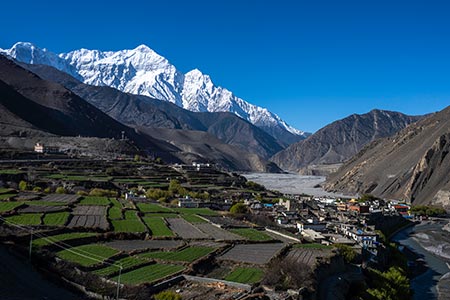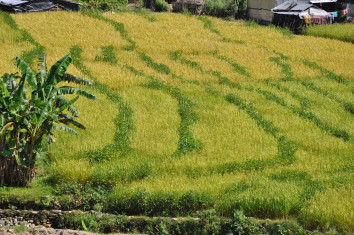Tihar Festival: Nepal's Festival of Lights and Flowers 2025
12th Aug, 2024
- himalayaheart

Nepal is a country rich in cultural diversity, where festivals are celebrated with immense joy and reverence. Among the numerous festivals, Tihar, also known as Deepawali or Diwali, stands out as one of the most significant and widely celebrated. This festival, often referred to as the festival of lights and flowers, marks a time when the entire country is illuminated with candles, lamps, and festive lanterns, honoring the Goddess Laxmi, the deity of wealth and prosperity.
Table of Contents
Nepal: A Land of Festivals
Nepal's multi-lingual and multi-cultural society means that festivals are an integral part of life here. Each festival has its unique significance, often symbolizing the triumph of good over evil, the birth of a deity, or the changing of seasons. Among these, Tihar is one of the most beloved, second only to Dashain in its importance. Tihar usually falls between mid-October and mid-November and is a time when Kathmandu, the capital city, transforms into a city of lights, with homes and streets aglow with festive decorations.
The Five Days of Tihar Festival
Tihar is a five-day festival, each day dedicated to honoring different deities, animals, and family relationships. Here's a detailed look at how each day is celebrated:
Day 1: Kaag Tihar - Worship of Crows
The festival begins with Kaag Tihar, a day dedicated to worshipping crows, which are considered the messengers of death. On this day, people offer rice and other foods to crows, believing that by appeasing them, they can avoid bad news and ensure good fortune in the coming year.
Day 2: Kukur Tihar - Honoring Dogs
The second day, Kukur Tihar, is devoted to honoring dogs, who are regarded as the guardians of the god of death, Yamaraj. People garland their dogs with marigold flowers, apply Tika on their foreheads, and offer them special treats. This day is a beautiful tribute to the loyalty and companionship that dogs provide.
Day 3: Laxmi Puja - Worship of Goddess Laxmi and Cows
Laxmi Puja is the most significant day of Tihar, where the goddess of wealth, Laxmi, is worshipped. Homes are cleaned and decorated with oil lamps, candles, and marigold garlands to welcome the goddess. Cows, symbolizing prosperity, are also honored on this day, as they were vital to the agricultural society of ancient Nepal.
Day 4: Govardhan Puja - Honoring Oxen and Celebrating Newari New Year
On the fourth day, Govardhan Puja, people worship oxen, which are indispensable to farmers. In the Newar community, this day also marks the celebration of their New Year, known as Maha Puja, where people worship themselves to purify and empower their bodies.
Day 5: Bhai Tika - Celebrating the Bond Between Brothers and Sisters
The final day of Tihar, Bhai Tika, is dedicated to celebrating the bond between brothers and sisters. Sisters apply a multi-colored Tika on their brothers' foreheads, garland them, and offer them sweets, while brothers give gifts in return. This day strengthens the familial bonds and is one of the most emotional and heartfelt parts of the festival.
Tihar Festival 2024: Dates to Remember
The Tihar Festival in 2024 will begin on October 30th and conclude on November 3rd. Here’s a quick look at the schedule:
| Date | Day | Activity |
|---|---|---|
| October 30, 2024 | Wednesday | Kaag Tihar - Worship of Crows |
| October 31, 2024 | Thursday | Kukur Tihar - Worship of Dogs |
| November 1, 2024 | Friday | Laxmi Puja - Worship of Goddess Laxmi and Cows |
| November 2, 2024 | Saturday | Govardhan Puja - Worship of Oxen |
| November 3, 2024 | Sunday | Bhai Tika - Celebration of Brother-Sister Bond |
Traditions and Celebrations of Tihar
Tihar is more than just a festival; it's a time of family reunions, community bonding, and cultural celebrations. Homes are given a fresh makeover, new clothes are worn, and special foods are prepared. The evenings are filled with the sounds of firecrackers, and the skies are illuminated with the glow of fireworks. People visit friends and relatives, exchanging gifts and festive greetings, making Tihar a time of togetherness and joy.
Exploring Tihar in Nepal
For travelers, Tihar offers a unique opportunity to experience Nepali culture up close. Whether it’s witnessing the vibrant street decorations in Kathmandu, participating in the Bhai Tika ceremony, or simply enjoying the festive atmosphere, Tihar is a festival that invites everyone to join in the celebrations.
The Significance of Tihar
Tihar’s significance goes beyond its rituals. It symbolizes the deep connection between humans, animals, and deities in Nepali culture. The festival also emphasizes the importance of family, as seen in the Bhai Tika ceremony, and the celebration of prosperity and good fortune, embodied in the worship of Goddess Laxmi.
Conclusion
Tihar is a festival that brings light, joy, and unity to the people of Nepal. As one of the most cherished festivals in the country, it is a time when the entire nation comes together to celebrate life, family, and the bonds that tie them to the divine. Whether you are in Nepal or simply interested in its rich cultural traditions, Tihar offers a glimpse into the heart of Nepali life and the values that are cherished by its people.
Recent From Blog

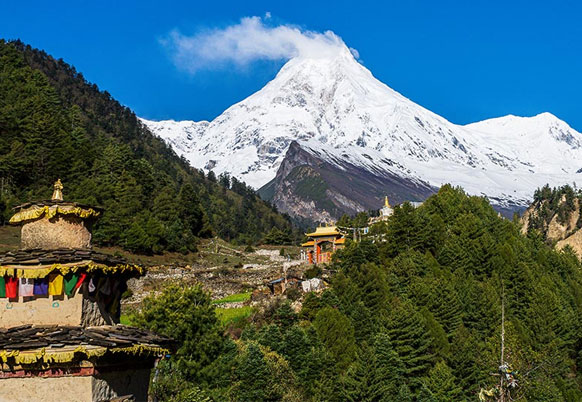
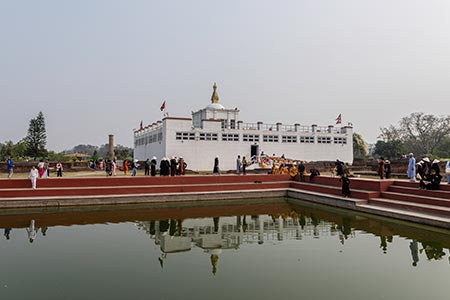



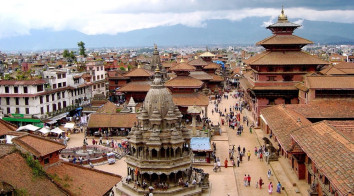




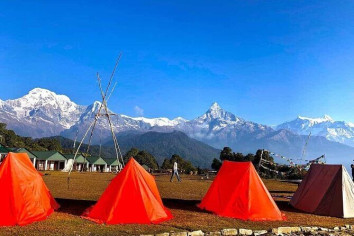
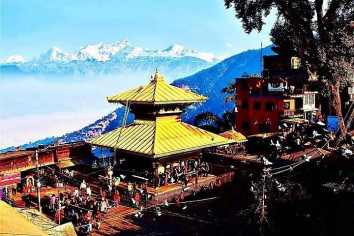
.jpg)

